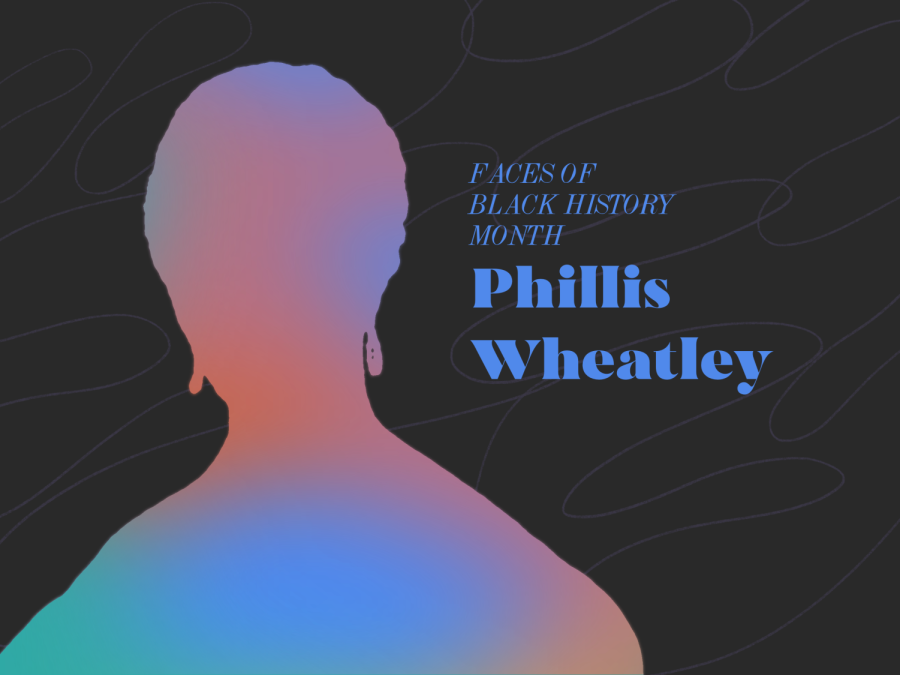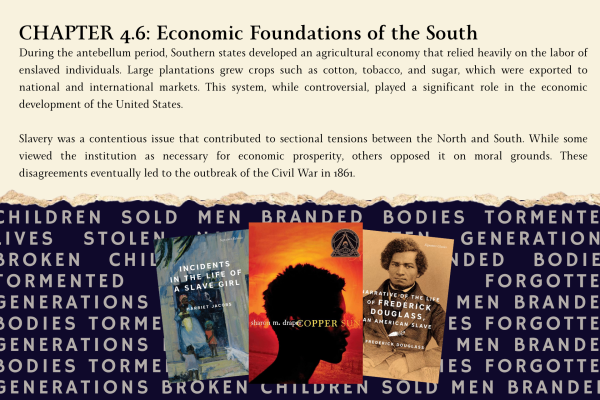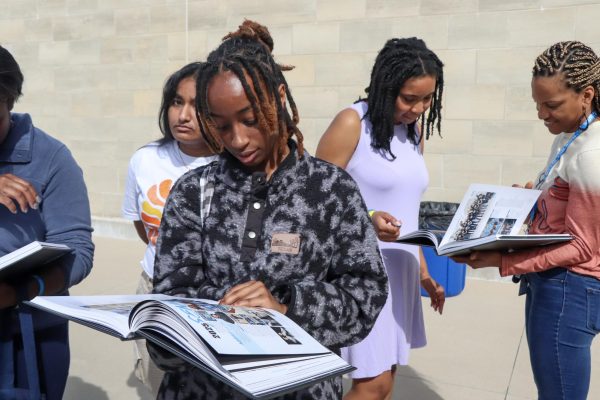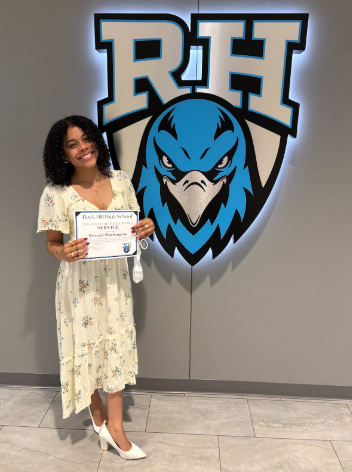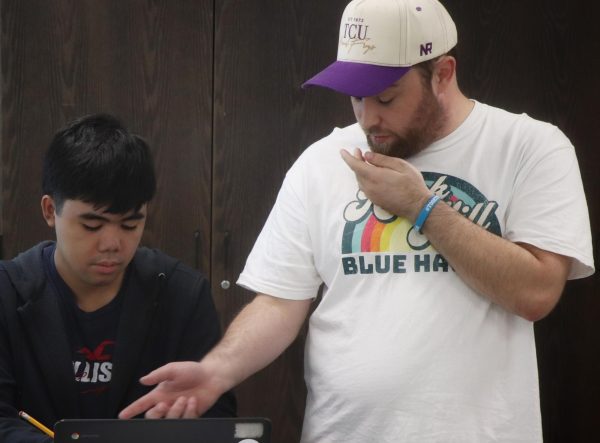Featuring the voices of change
Phillis Wheatley, trailblazer who created the opportunity for future generations
A graphic created by graphic design artist Riley Gillum features the poet who created opportunities for future African-American female poets. “Phillis Wheatley was an African American poet that showed her suffering through poetry and was the first African American Women poet,” junior Aiden Brackens said.
“Thy various works, imperial queen, we see, How bright their forms! How deck’d with pomp by thee,” line from On Imagination by American poet Phillis Wheatley created during the American Revolution and when she was enslaved.
Phillis Wheatley was the first African American to become an author. Born in 1753, she was taken away from her family and shipped off at seven. While enslaved by a wealthy Boston family, Phillis Wheatley received education from John and Susanna Wheatley.
During the 1700s, slavery in America was allowed, and unfortunately, not all enslaved people got the same treatment or education that Phillis Wheatley received.
“I know Phillis Wheatley as a trailblazer. She wrote about a variety of topics through poetry during the American Revolution and became the first published African, slave, and only third woman in history for her poetry,” Mr. Denham said.
Around the age of 12, Phillis published her first poems. These poems became famous across the Atlantic. By the age of 18, Phillis collected her published poetry and, with the help of Susanna, tried to advertise her work in Colonial Boston.
Wheatley, however, was met with unfortunate circumstances. The American Colonies did not support African American writers. So, in 1773, Phillis and the son of the Wheatleys, Nathaniel, traveled down to London. While in London, the people loved her work and adored her for her character and personality.
“Poetry is one of the oldest literary art forms. It is the earliest form of recited oral histories, law and ancestral information because the rhythmic and repetitive forms made accounts simpler to remember before the development of writing,” junior Aiden Brackens said.
While in London, Phillis met a friend of Susanna, Selina Hastings, the Countess of Huntingdon, who later helped fund her publication. Finally, in late 1773, her book, Poems on Various Subjects, Religious and Moral, was published.
After her trip to London, trouble arose for Phillis. As being in Boston in 1774, freedom was extremely hard for her. Also, most of the Wheatley family passed away, making it difficult to secure funds to publish more of her poems.
Phillis got married in 1778 to a free Black man, John Peters. Sadly while she had three children, all three never survived through infancy. In 1784, Phillis passed away, but the cause of her death is still a mystery.
“The interesting aspect for me is how she overcome such difficult circumstances, not just as a slave, but as a woman who had lost multiple children in infancy, which is another connection point many could have through her work,” Denham said.
Phillis Wheatley helped inspire future generations through her writing and future African American poets. “People in history like Phillis Wheatley paved the way for the inspiration and brilliance of Black female poets throughout history like Alice Walker, Maya Angelou, and Gwendolyn Brooks, all the way to modern poets like Amanda Gorman, who continues to inspire,” Denham said.
You can read Phillis Wheatley’s book here.
Your donation will support the journalists of Hill Top Times and RH Media. Your contribution will help cover travel and registration costs needed for state and national conventions.

This is Jacob's third year on staff and he is a senior at Rock Hill. He is a part of Rock Hill Media and as well in the Rock Hill Band. He plays both the...


